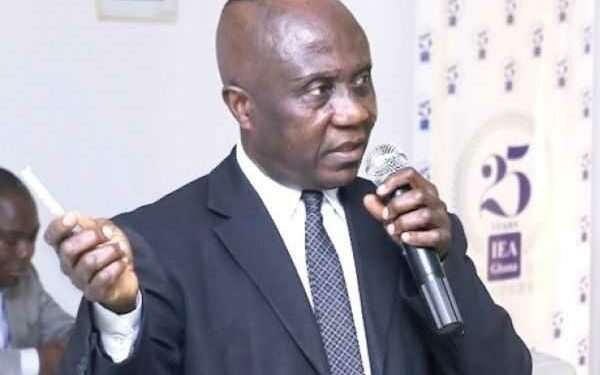2023 Budget: Rebalance allocations to promote economic growth – IEA
The Institute of Economic Affairs (IEA) has advised government of the need to rebalance its budgetary allocations from compensation to capital expenditure in a bid to drive economic growth.
Government spending is currently strongly biased toward recurring expenses rather than capital ones – which results in incorrect prioritisation of expenses that is detrimental to the progress of the nation.
Recurrent expenses make up over 90 percent of the total in the 2022 budget, and capital expenses (CAPEX) make up the rest. 14 percent of total income comes from CAPEX – which is very low (2.3 percent of GDP) and a drag on economic growth.
Prior to reading of the 2023 budget and government’s economic plans, Director of Research at the IEA, Dr. John Kwakye, in a press briefing emphasised that recurrent spending as a whole has to be reduced in order to free-up resources for CAPEX to improve long-term growth prospects.
Interest payments make up the major portion of central government’s recurrent spending, accounting for 35 percent of the total; followed by compensation (32 percent) and transfers to other governmental entities (20 percent).
About 77 percent of overall expenditures are made up of those three items. Additionally, as they account for 107 percent of total income, some borrowed money will likely be required to cover them – with remaining funds going to other recurring expenses like goods and services and CAPEX.
“The curtailment should target, especially, compensation through considerable downsizing of the public sector, including the overall government machinery. A small country like Ghana has 28 ministries and 85 ministers (including 16 Regional Ministers) by my own count.
“Ideally, we need just 12 Ministries manned by 24 Sector Ministers and their deputies plus 16 Regional Ministers, making 40 ministers in total. This will require the merger of ministries,” Dr. Kwakye suggested.
“There is a need to rebalance expenditure for increasing allocations to especially important sectors like agriculture, industry, energy and infrastructure. Also, in all sectors, a rebalancing is required to reduce allocations to compensation and increase those to capital expenditure so as to promote economic growth,” he said.
The Director of Research called for a review of the ‘Article 71 office-holders’ compensation to reduce its burden on the budget, as well as some cuts to government consumption of goods and services in general: including travel, medical expenses, entertainment, hospitality, utilities and stationery, among others.
“Indeed, we should move quickly to a situation wherein recurrent expenditure never exceeds total revenue, such that borrowing can be used exclusively for CAPEX. The Fiscal Responsibility Act (FRA) may have to be amended to include the rule that borrowing should be exclusively used to fund CAPEX. That makes economic sense. Meanwhile, raise CAPEX to between 5 percent and 7 percent of GDP in 2023, and further to 10-l2 percent in 2024,” Dr. Kwakye advised.








